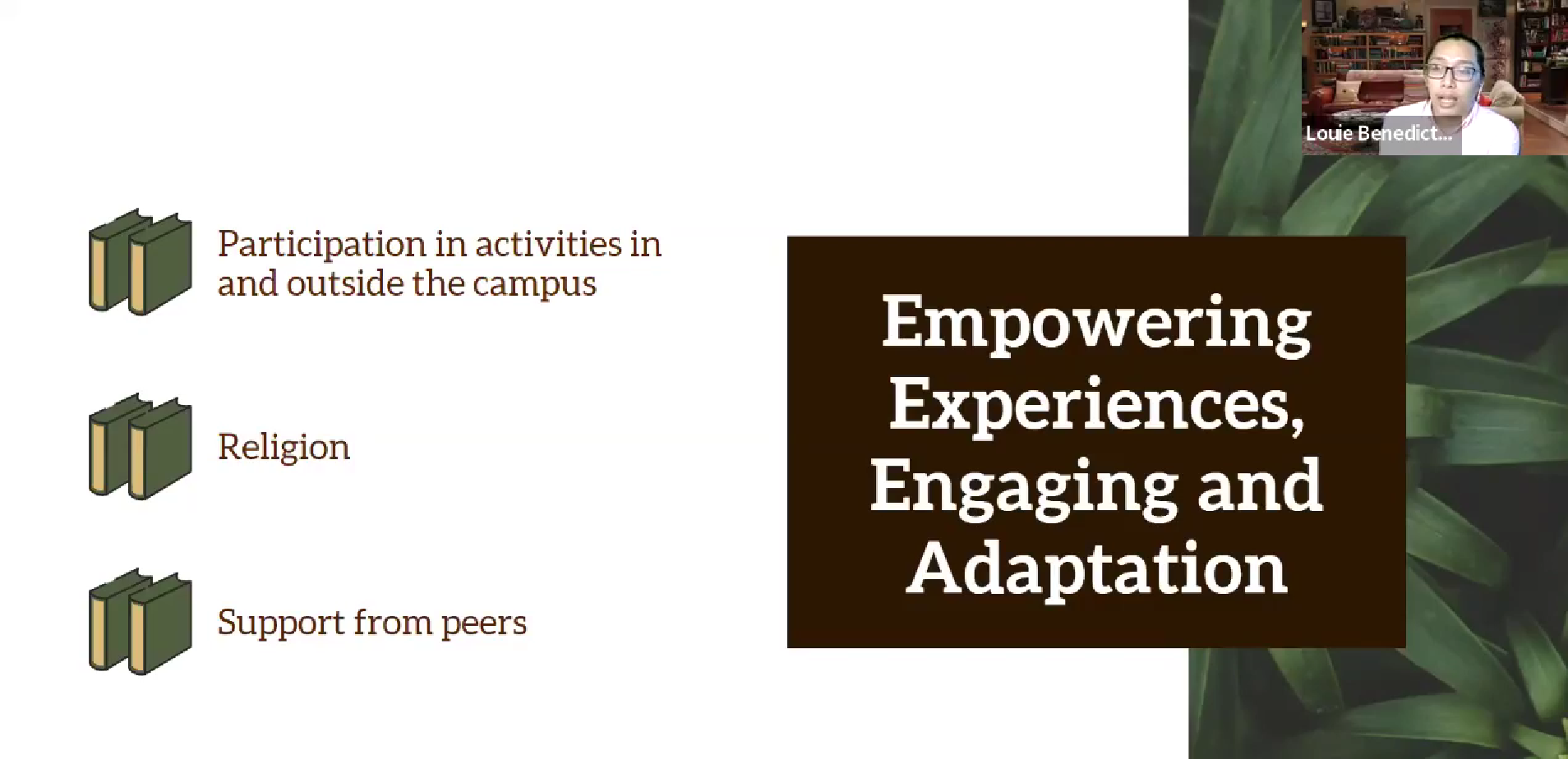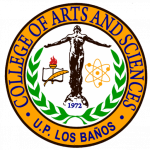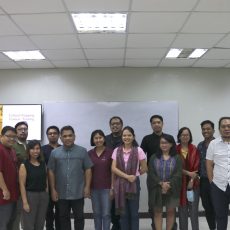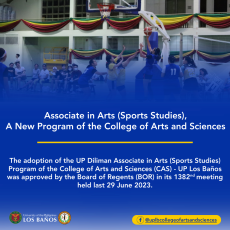
The Department of Social Sciences (DSS) held its Annual Corazon B. Lamug Lecture last November 25. The annual memorial lecture was dedicated to Dr. Corazon B. Lamug who served as a former Chair of the Department of Social Sciences, former Dean of the College of Arts and Sciences, and former President of the Philippine Sociological Society. For this year, the theme is “Globalization, Internationalization of Education, and Social Capital: Everyday practices of international students to acculturate in a new environment” with Philippine Sociological Society President Dr. Louie Benedict R. Ignacio as the guest lecturer.
Asst. Prof. Athenee P. Mercado, DSS Chair, opened the program by talking about how globalization has been a dominant trend defining economic relations for decades whose effects spilled over to different aspects of social life including the education sector. She stated that the lecture seeks to inform the audience of the current Philippine education landscape as well as the implications of ideas such as market competitiveness in education.
In her message, Dr. Chrysline Margus N. Piñol, Associate Dean of the College of Arts and Sciences, shared about the university’s experience two years into the global pandemic with constant recalibration of courses and exploration of teaching strategies, among other efforts made, as adjustments for more effective learning. She also mentioned the importance of collaboration in achieving the university’s goals while ensuring that no one will be left behind.
Dr. Ignacio at the beginning of his lecture mentioned that the content was the product of his observations during the university accreditation process he facilitated as a former university administrator. His lecture was set in the context of globalization and the internationalization of higher education where the realities of the two coincide with the global demand for higher educational institutions to subscribe to a set of standards on education initiated by regional organizations such as the ASEAN through the ASEAN University Network. These efforts include the harmonization of curricula and overall unification of educational systems which in turn facilitates intercultural exchanges among universities and addresses challenges such as global citizenship and internationalization.
He mentioned acculturation and social capital as products of educational internationalization. Acculturation, he explained, entails the condition which allows the students’ social and psychological readiness to properly integrate themselves into the society and culture of the host country. Social capital, on the other hand, provides opportunities for both foreign and national students to learn from the interaction and networks they are able to develop.
Dr. Ignacio then presented the experiences of international students as part of the internationalization efforts of higher education institutions in the Philippines. He described how international students used both human and social capital to successfully acquire higher education in a foreign land along with the comparative struggles of international students and identify everyday practices to overcome identified difficulties.
He discussed how the availability of information on quality assurance rankings increased the knowledge and expectations foreign students have about the university and the country they will go to. The respondents in his study also enumerated possible problems they expect to encounter such as adjusting to the new environment, finding a new set of friends, and experiencing differences in language, culture, and food, and even homesickness.
He then explained how the appropriate use of social and economic capital solves the enumerated problems especially in terms of adjustments of established relationships, economic resources or support from families, and the image of foreigners. He also emphasized in his lecture the significance of empowering experiences feeding into further engagements and adaptation of foreign students. These may come in the form of participation in activities inside and outside the campus, religious activities, and support from peers.
Asst. Prof. Rowena P. De Guzman, Head of the DSS SAP Division, delivered the closing remarks. She highlighted the importance of public access to higher education in order to advance knowledge in line with economic and cultural considerations and to mold individuals to think critically. Finally, as we are facing similar challenges to in the current remote learning setup, Asst. Prof. de Guzman said it is up to us to empower our experiences and utilize the capitals that we have to engage in and adapt to our situation.
— LG Reyes



